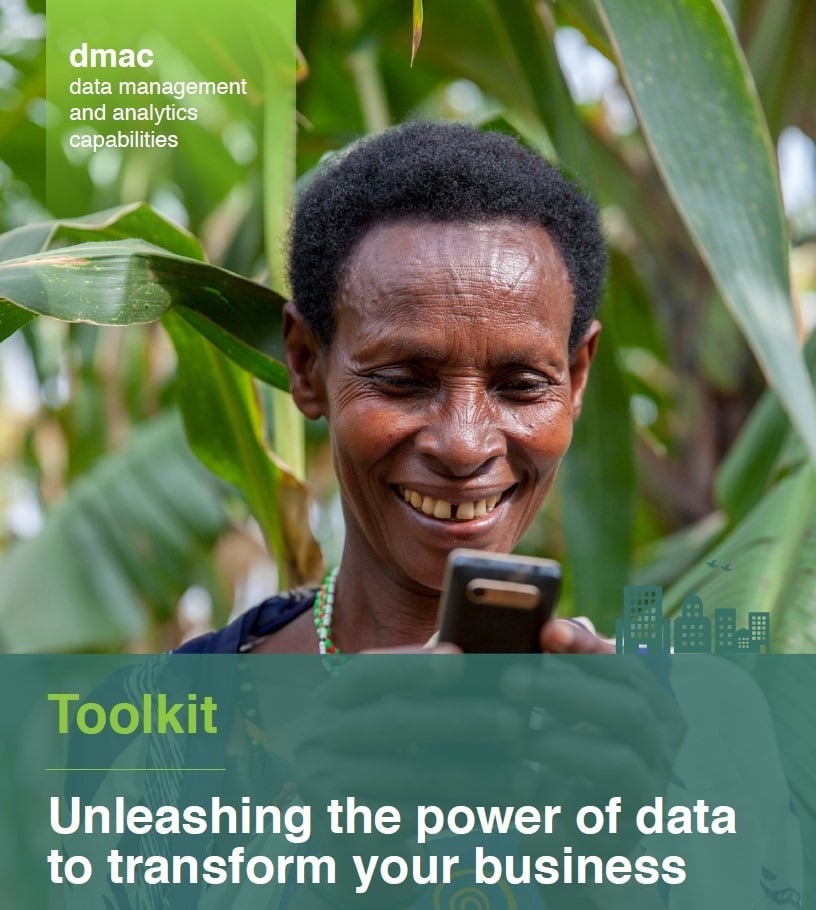
Low-income earners, women, and youth who have traditionally been locked out of the financial system are no longer invisible. The advent of mobile money and uptake by this market segment has created data footprints that enable financial service providers (FSPs) to analyse their financial needs. In addition, external research carried out by governments and donors is free and publicly available. This research data is instrumental in enabling financial service providers to obtain a better understanding of clients that they have had no previous interactions with.
The Data Management and Analytics Capabilities (DMAC) project implemented in Sierra Leone, Tanzania and Zambia sought to demonstrate the case for the use of data in the product development cycle of banks, insurance companies, and fintechs. Learnings and lessons from the project implementation have been developed into a toolkit that acts as a guide for FSPs seeking to derive maximum value from their internal data, externally available research data and other third-party data, in order to improve their service offering to new and existing clients.
Read more on how to use data to transform financial services here.,

With more data being created at a faster rate than ever before, it can be hard for financial service providers (FSPs) to know what to do with the plethora of data available to them. FSPs are capturing large amounts of data on their internal systems and also have access to external data – as a result of improved connectivity and increasing smartphone penetration, as well as through publicly available external data (e.g. national surveys).
However, many FSPs are not making full use of this data as they may not understand its full potential, have information overload, inefficient processes and systems, and think it is expensive to make use of data. The toolkit aims to help FSPs understand the different data sources available to them and how to use them effectively to transform their business.
Although primarily aimed at FSPs, the toolkit may also be of use and interest to those who provide services to FSPs in their respective markets (such as data management and research firms) and other organisations wanting to implement programmes that encourage FSPs to make more and better use of data.
The toolkit draws on the valuable learning gained through the Data Management and Analytics Capabilities (DMAC) programme that uses data-driven evidence to help FSPs in sub-Saharan Africa to design inclusive and affordable financial products and services that respond to the needs of unserved and under-served adults, with a particular focus on women and youth.

